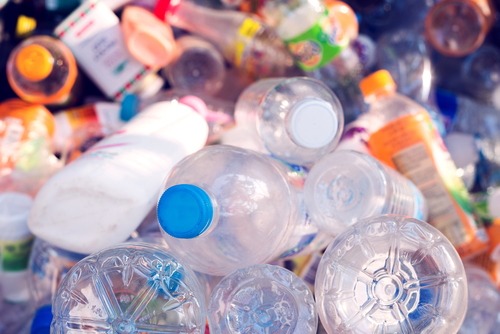
The Pennsylvania State University (Penn State) announced Monday that it had been awarded a $3.4 million contract to fund research targeting inefficient methods of processing and upcycling mixed plastic waste.
The project, funded by the REMADE Institute, a public-private partnership established by the U.S. Department of Energy, will receive $1.7 million in federal funds, with a matching $1.7 million paid for by the project partners. It is one of 22 recently funded by REMADE.
According to a global analysis of mass-produced plastics, a total of 8.3 billion metric tons of virgin plastics has been generated worldwide to date. As of 2015, 79 percent of plastic waste has been left to accumulate in landfills or natural environments. Only 9 percent is recycled.
Hilal Ezgi Toraman, assistant professor of energy engineering and chemical engineering, is developing a flexible, two-stage chemical recycling process that decomposes plastic and then converts it into valuable chemicals used to create new products.
With the new funding, an interdisciplinary team will work on the project, “Chemical Recycling of Mixed PET/Polyolefin Streams Through Sequential Pyrolysis and Catalytic Upgrading,” to assess the financial and environmental viability of Toraman’s process from the lab to the industrial scale using integrated techno-economic analysis and life cycle assessment tools.
“Current commercial processes either operate below the necessary scale or are only applicable for single plastic types, not mixed plastics,” said Toraman, a Penn State College of Earth and Mineral Sciences’ Virginia S. and Philip L. Walker Jr. Faculty Fellow. “When you consider the sheer amount of plastic, the development of a process that minimizes the steps needed for commercial implementation by accepting mixed, dynamic plastic inputs — there is immense potential to significantly affect the U.S. economy and environment.”
The project will proceed in two steps – first, studying plastic waste decomposition, and second, converting the PET, PP mixture pyrolysis products into valuable chemicals such as benzene, toluene, xylene, and olefins using low-cost, stable catalysts.
“This two-stage process has the potential to revolutionize plastic recycling,” Toraman said. “System designs can then be tailored to a broad range of plastic waste streams, and predictive design decisions can be implemented to reduce energy demand and greenhouse gas emissions.”